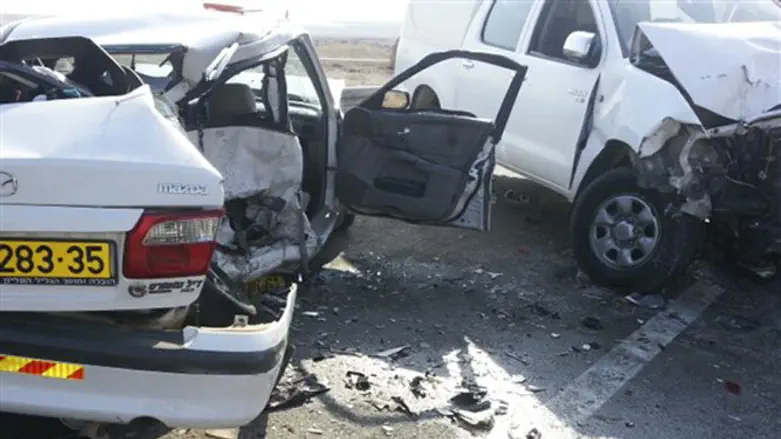
"Coronavirus is a big problem, and it has better PR than traffic accidents, but there are more deaths from people texting and driving than from the coronavirus," says Gil Sheratzky, director of SaverOne, a new Israeli start-up that has set itself a mission to develop an application that can save lives on the country’s – and potentially the world’s – roads.
Sheratzsky was talking with Globes, following SaverOne’s going public on the Tel Aviv Stock Exchange. He describes how he saw “how much money is being invested in achieving a coronavirus vaccine; they’ll invest any amount to get to market three months ahead of the others,” and he expresses the hope that governments will begin to pay more attention to the dangers of texting while driving, potentially saving many lives.
“There are lots of studies on cell phone usage and accidents,” notes SaverOne’s CEO Ori Gilboa. “The percentages range from 25% to 70%. I spoke with the head of the traffic department at the Israel Police, who estimates at least 70%.”
SaverOne was founded back in 2014 and managed to raise $10 million even before going public. CEO Ori Gilboa told Globes that, “The company was founded with the vision of providing a life-saving technological product to deal with the number one problem in traffic accidents: distractions caused by mobile phone usage.” Even though the simplest solution might seem the easiest too – simply switch off your phone before driving – Gilboa insists that it’s actually “a very complex technological problem” – mainly because drivers are unwilling to actually take that step.
Instead, SaverOne’s technology, once downloaded as an app on the phone, automatically disables the device when it is in the immediate vicinity of the driver’s seat. “SaverOne recognizes phone signals from inside the vehicle … and it is able to distinguish between a phone located in the driver’s area and phones in the passenger area. The wavelength is twenty centimeters, and to the best of our knowledge there is no other technological solution in the world or any other way to identify which phone is the driver's.”
Once the phone is detected, SaverOne prevents certain apps from working, with no possibility of interference on the driver’s part – because, as Gilboa says, “We’re talking about an addiction … an effective solution won’t ask drivers to limit themselves.” But as soon as the driver leaves his car, the phone immediately unblocks, also automatically.
SaverOne collaborates with the Or Yarok Association for Safer Driving as well as with United Hatzalah. Looking ahead, Gilboa expresses the hope that the government will intervene and make installing the SaverOne app a requirement prior to obtaining a vehicle license, or at least promote the app by offering insurance discounts for users.
“The EU has already drafted a bill that mentions requiring installation of a mobile distraction system in vehicles from 2022, at the production stage,” says Gilboa. “Right now, there’s no binding requirement anywhere in the world, but there is an understanding that this is the way to go.”
He adds that, “We also have pilot projects with the IDF and the Israel Police. We’re developing a product for buses and hope to launch it by the end of the year - all of the public transport companies are waiting for it.” In fact, everyone else should be waiting for it, too.
